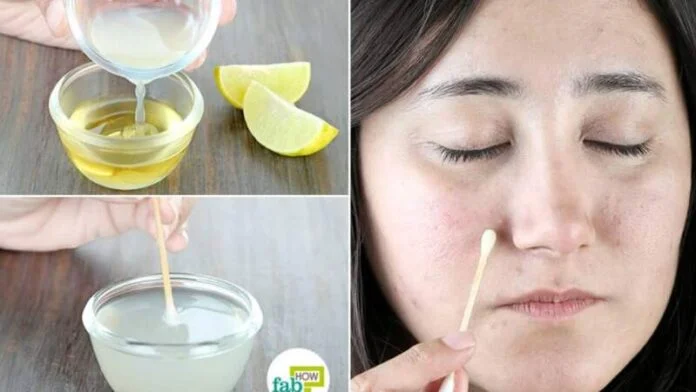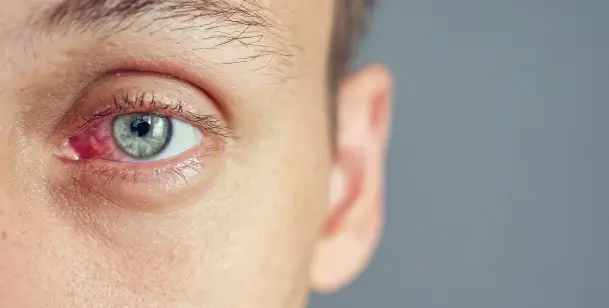Dark spots, also known as hyperpigmentation, can be a source of frustration and self-consciousness for many people. These spots can result from various factors, including sun exposure, aging, acne scars, and hormonal changes. While there are numerous treatments available, natural remedies often appeal due to their accessibility and minimal side effects. One such remedy is lemon juice, renowned for its skin-lightening properties.
In this comprehensive guide, we will explore how to use lemon juice to remove dark spots, the science behind its effectiveness, and some frequently asked questions to help you achieve clear, radiant skin.
Why Lemon Juice?
Lemon juice is a popular home remedy for dark spots due to its high vitamin C content and natural acidity. Here are the primary reasons why lemon juice is effective:
1. High Vitamin C Content
Lemon juice is rich in vitamin C, an antioxidant that helps repair damaged skin cells, promotes collagen production, and reduces melanin production, which can help lighten dark spots.
2. Natural Exfoliant
The citric acid in lemon juice acts as a natural exfoliant, removing dead skin cells and promoting the growth of new, healthy skin. This can help fade dark spots over time.
3. Skin Brightening
Regular application of lemon juice can brighten the overall skin tone, making dark spots less noticeable and giving the skin a more even appearance.
4. Antibacterial Properties
Lemon juice has antibacterial properties that can help prevent acne and other skin issues that might lead to the formation of dark spots.
How to Use Lemon Juice for Dark Spots
Using lemon juice to treat dark spots is straightforward, but it’s important to follow specific guidelines to avoid skin irritation and maximize effectiveness.
1. Direct Application
- Ingredients: Fresh lemon juice.
- Instructions:
- Cleanse your face with a gentle cleanser.
- Squeeze the juice from a fresh lemon.
- Use a cotton ball to apply the juice directly to the dark spots.
- Leave it on for 10-15 minutes.
- Rinse thoroughly with lukewarm water.
- Apply a moisturizer to prevent dryness.
- Frequency: 2-3 times per week.
2. Lemon and Honey Mask
- Ingredients: 1 tablespoon of fresh lemon juice, 1 tablespoon of honey.
- Instructions:
- Mix lemon juice and honey in a small bowl.
- Apply the mixture to your face, focusing on dark spots.
- Leave it on for 20 minutes.
- Rinse off with warm water.
- Follow with a moisturizer.
- Frequency: 2-3 times per week.
3. Lemon and Aloe Vera Gel
- Ingredients: 1 tablespoon of fresh lemon juice, 1 tablespoon of aloe vera gel.
- Instructions:
- Mix lemon juice and aloe vera gel.
- Apply the mixture to the dark spots.
- Leave it on for 20-30 minutes.
- Rinse with cool water.
- Moisturize your skin.
- Frequency: 3-4 times per week.
4. Lemon and Turmeric Paste
- Ingredients: 1 tablespoon of lemon juice, 1 teaspoon of turmeric powder.
- Instructions:
- Combine lemon juice and turmeric powder to form a paste.
- Apply the paste to dark spots.
- Leave it on for 15-20 minutes.
- Rinse off with warm water.
- Moisturize your skin.
- Frequency: 2-3 times per week.
5. Lemon and Yogurt Mask
- Ingredients: 1 tablespoon of lemon juice, 2 tablespoons of plain yogurt.
- Instructions:
- Mix lemon juice and yogurt.
- Apply the mask to your face.
- Leave it on for 20 minutes.
- Rinse off with lukewarm water.
- Moisturize your skin.
- Frequency: 2-3 times per week.
Precautions and Tips
While lemon juice can be effective, it’s important to use it correctly to avoid adverse effects:
- Patch Test: Always perform a patch test before applying lemon juice to your face to check for any allergic reactions or skin sensitivity.
- Sun Sensitivity: Lemon juice can make your skin more sensitive to sunlight. Always apply sunscreen with at least SPF 30 when using lemon juice treatments and avoid direct sun exposure.
- Moisturize: Lemon juice can be drying, so it’s crucial to follow up with a good moisturizer to keep your skin hydrated.
- Avoid Open Wounds: Do not apply lemon juice to open wounds, cuts, or severely inflamed skin as it can cause irritation and stinging.
- Dilution: If you have sensitive skin, consider diluting lemon juice with water or other soothing ingredients like aloe vera to reduce the risk of irritation.
Frequently Asked Questions (FAQs)
How long does it take to see results?
Results can vary depending on the severity of the dark spots and your skin type. Generally, you may start to see noticeable improvements after 4-6 weeks of consistent use.
Can I use bottled lemon juice instead of fresh lemon juice?
Fresh lemon juice is recommended because it retains more of its natural enzymes and nutrients, which can be lost during the processing of bottled juice.
Is lemon juice safe for all skin types?
Lemon juice can be too harsh for very sensitive skin. If you have sensitive skin, consider diluting it with water or mixing it with soothing ingredients like honey or aloe vera.
Can I leave lemon juice on my skin overnight?
It’s not advisable to leave lemon juice on your skin overnight, as it can cause excessive dryness and increase the risk of irritation. Stick to the recommended application time of 10-30 minutes.
Are there any side effects of using lemon juice on the skin?
Possible side effects include dryness, irritation, and increased sensitivity to sunlight. Always perform a patch test and use sunscreen to mitigate these risks.
Can I use lemon juice if I have acne?
Yes, lemon juice can help with acne due to its antibacterial properties, but it should be used with caution to avoid irritation. Consider combining it with other soothing ingredients.
What should I do if I experience irritation?
If you experience irritation, rinse the lemon juice off immediately with cool water and apply a gentle moisturizer. Discontinue use if irritation persists.
Can lemon juice remove dark spots caused by sun exposure?
Yes, lemon juice can help lighten dark spots caused by sun exposure due to its skin-brightening properties. However, it’s crucial to protect your skin from further sun damage by using sunscreen.
Is it safe to use lemon juice on dark spots during pregnancy?
Lemon juice is generally safe to use during pregnancy, but it’s always best to consult with your healthcare provider before starting any new skincare regimen.
Can men use lemon juice for dark spots?
Absolutely. Lemon juice is suitable for all genders and can be effective in treating dark spots on men’s skin as well.
Conclusion
Lemon juice is a powerful, natural remedy for reducing dark spots and achieving a brighter, more even complexion. Its high vitamin C content, natural exfoliating properties, and skin-brightening effects make it an excellent option for those seeking an affordable and effective solution. By following the guidelines and precautions outlined in this guide, you can safely and effectively use lemon juice to improve your skin’s appearance and boost your confidence.
Remember, consistency is key, and always protect your skin from the sun to prevent further dark spots from developing. Here’s to clearer, more radiant skin with the help of this simple, natural remedy!



